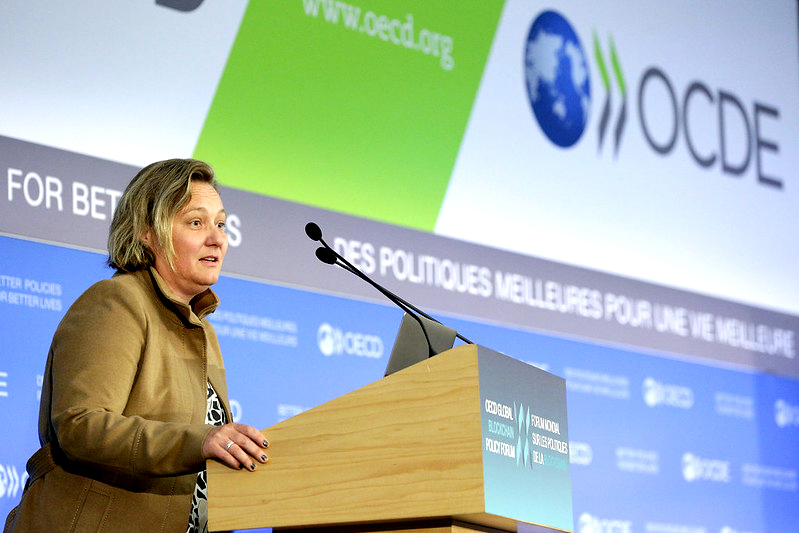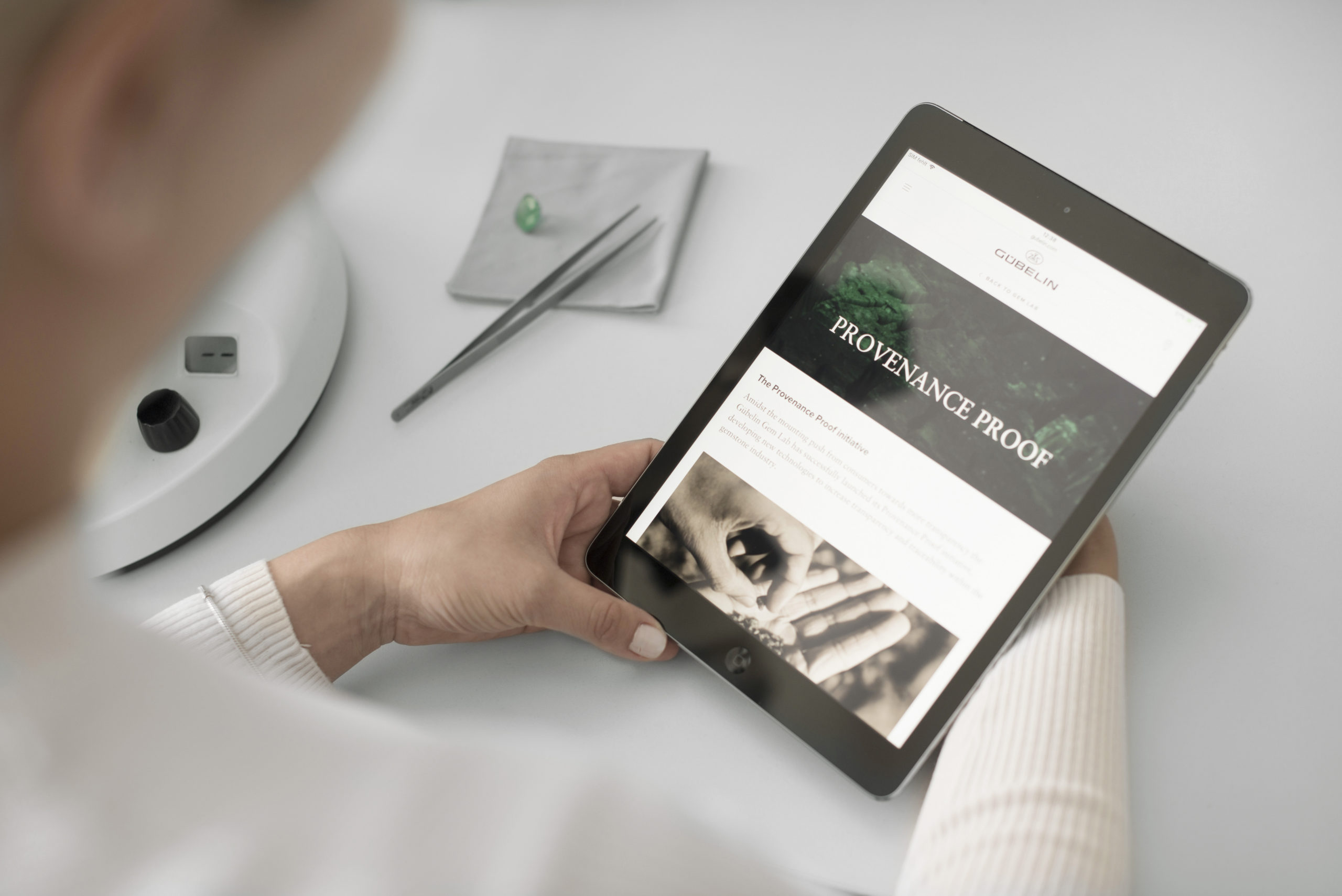The Global Brand Counterfeiting Report has recently estimated losses of nearly $100bn, demonstrating the growing extent of counterfeiting in luxury goods. Before the parasite eventually consumes its host, can blockchain luxury goods help the brands to fight back and protect their identity?
The global luxury goods market is arguably becoming a victim of its own success. Many years spent developing brand awareness – coupled with price tags beyond the financial reach of all but the wealthiest customers – have fuelled a counterfeit industry that now threatens the integrity of the original manufacturers.
Of course, there have always been knock-off examples of Gucci handbags, Rolex watches, Chanel earrings and Hermès scarves. They were always easy to spot, whether from the quality, location or cost. Nowadays, the counterfeit underworld is much more sophisticated, given the rewards on offer. Online retail, and resale sites alike, have also opened up new avenues for the fraudsters. The leading brands must find new ways of reassuring customers that they are buying the genuine article.
The trust issue goes further than fakes. Customers want to know without a doubt that their item conforms to the highest ethical values. For example, can the brand prove that all its workers are properly compensated? Can all the raw materials – especially animal skins and precious metals, diamonds and gemstones – be traced to non-conflict, sustainable sources? Saying so doesn’t make it so. The burden of evidence is with the manufacturers (read more on gemstone blockchain).
The environmental footprint of brands has quickly become a source of competitive advantage. Tracking raw materials usage, waste and water management and proper use of chemicals are part of the brand story. Fast fashion cycles and growing branding expenditures mean fashion houses are increasingly needing to identify more sustainable ways to differentiate their brands. When products from a fashion label are counterfeited, reputations built on craft, origin, and quality are inevitably tarnished.
Through blockchain, NFC and IoT technologies, the Everledger platform creates a unique digital identity for every product, helping to give apparel and luxury brands the confidence to stand behind the goods that bear their name. By surfacing the lifetime journey of luxury goods, we enable companies to combat counterfeiting while providing transparency into their fair working conditions and ethical sourcing of raw materials. Each product has its ownership registered on our private blockchain, where every transaction is securely recorded and accessible to end consumers.
We have recently begun a partnership with a luxury apparel brand owned by a €14 billion-luxury group based in France. This partnership will allow customers to view the full lifetime history of their garment, using blockchain technology. This innovation will aid and encourage re-commerce to extend the wearable value of clothing – the very antithesis of fast fashion.
The goal of the brand is to promote higher customer engagement and loyalty, as well as re-commerce. They want customers who love their clothes and the brand to trade items with each other, taking part in a much wider community of like-minded people. It is a value proposition that goes well beyond just wearing clothes. Every collaborator in the story of a garment is credited for their contribution, and every consumer is invited to take the full value of their products, creating a new ecosystem for those engaged with the brand.
Each item is registered on the Everledger blockchain platform, blending technology and design. This revolutionary approach for the fashion industry allows our partner to tell a unique and unchangeable story about every garment. Equipped with the authenticity enabled by blockchain, customers can buy, collect and sell items with 100% certainty that each one is one-of-a-kind and made by people who take real pride in working for the brand.
Competition and secrecy are hallmarks of the luxury goods industry, however, the common challenge of counterfeiting and unethical trading could incentivise rivals to work closer together. For example, in the precious gemstone market – where 80% of stones are extracted by small-scale, artisanal miners – issues remain around human rights, working conditions and environmental protection. Synthetics or imitants enter the early stages of the supply chain. Artificially enhanced natural gemstones are sold without disclosure of the effects of the enhancement. In the absence of authenticated evidence, stakeholders will need to buy and sell stones on trust alone.
Everledger is proud to partner with Gübelin Gem Lab – the world’s leading gemmological laboratory for examining and determining the authenticity of precious stones. Together, we deliver the Provenance Proof Blockchain to improve traceability in the industry. Through the blockchain technology of this platform, coupled with Gübelin’s Emerald Paternity Test, it’s now possible to evidence a stone’s birthplace and trace its journey across the value chain.
Everledger also partners with the Gemological Institute of America (GIA), the largest gem lab in the world, to provide grading reports for the stones on its own platform, including details about the colour, clarity, shape and carat weight, which ultimately inform the value of each diamond.
We recently launched version 2.0 of our blockchain platform, with the aim of increasing levels of transparency across complex and regulated supply chains. For example, US-based retailer Fred Meyer Jewelers uses the Everledger platform to show the journey of its diamonds in its RockSolid collection, which is now present across 100 stores in the United States.
Last year, we also entered a new partnership with Barcelona-based jewellery designer and manufacturer Facet, supporting the launch of their new collection of blockchain-enabled diamonds, DiamondByway. This is the first extensive collection of traceable jewellery in Europe, demonstrating Facet’s determination to a more sustainable and socially conscious industry.
In response to customer demand for transparency, Chow Tai Fook Jewellery Group and the GIA approached Everledger to design a solution that would deliver secure, digital diamond grading reports on the blockchain. Customers of Chow Tai Fook’s T Mark luxury brand now receive a permanent and immutable blockchain record of their diamond’s GIA grading information, giving them additional assurance and transparency of their diamond grading and traceability information. This industry breakthrough adds a new dimension to their customers’ experience of owning a diamond.
Fast fashion, with its emphasis on driving prices as low as possible, is both a blessing and a curse, demanding higher levels of transparency in terms of sustainable business practices. The well-worn example is a fast-fashion shirt, which might contain cotton fabric, polyester thread and plastic buttons, each from a different country and transported in bulk by sea. It’s then cut and sewn in another country, packaged somewhere else and then sold in Europe. The economies of scale (and labour) keep the price tag low.
According to a report by Accenture, almost one in three global chief executive officers identify supply chain complexity as one of their top business risks. Understanding the true provenance of materials and components is becoming increasingly difficult. Lack of visibility translates into business risk, especially now that consumers are demanding higher standards in terms of worker rights, fair pay and ethical sourcing.
The snowball effect of complex supply chains is becoming a brand headache. Even those companies that manage their provenance carefully can become tainted by growing consumer suspicion about a sector. For example, a restaurant in China might think twice about buying French wine, if it reads media stories about the rise in counterfeit imports of the brand in which they were interested (read more on blockchain wine). Or a responsible fashion label might see sales dip as part of a wider industry backlash.
Therefore, the need for increased transparency and traceability in supply chains – as a way of mitigating the risks of complexity – is rapidly moving up the agenda. Blockchain technologies, as well as collaborative and neutral platforms, can offer mutual accountability that brands need to reassure consumers and orchestrate more sustainable provenance. Information about a product’s origin, characteristics, transactional data and sustainable footprint can then be made available publicly, according to privacy settings and guidelines.
In an age when brand loyalty is low and customer experience is vital, any hurdle in providing trustworthy information about a product’s provenance and characteristics can create friction for customers at the time of purchase.
By surfacing more accurate information, Everledger can help the luxury and apparel industries to function with efficiency, improving the experience for brands and customers alike. Fashion houses, retailers and consumers can come together behind a more unified and trustworthy set of reliable information.
Our blockchain and IoT solutions allow all stakeholders to make informed decisions, claim authenticity, track ownership, and improve customer experience like never before. Everyone wins with ever more transparency.










